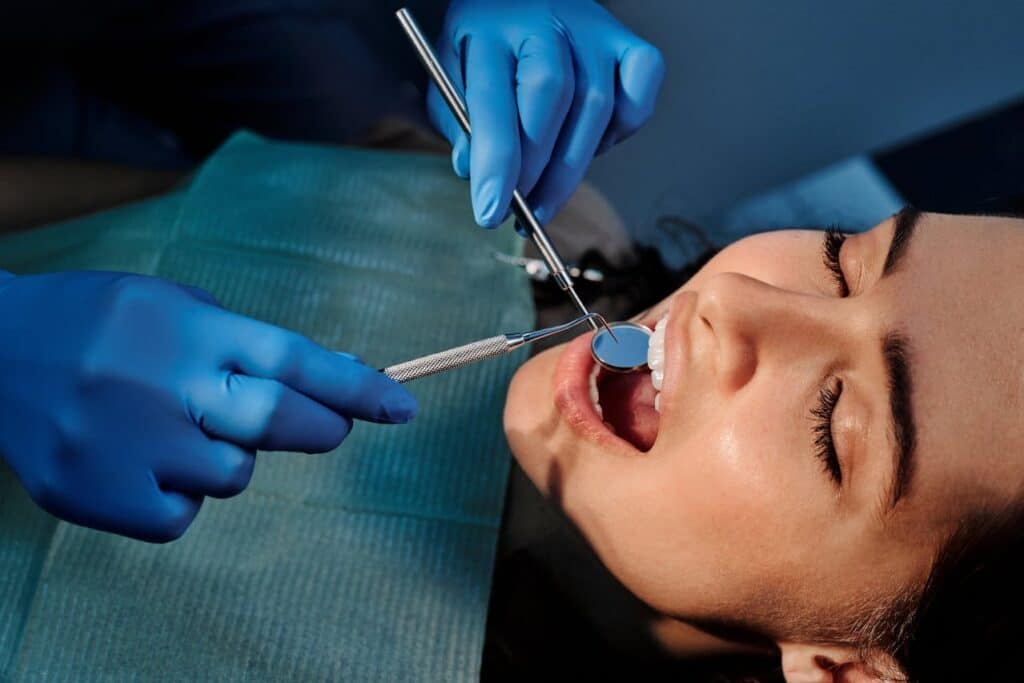Dental implant surgery offers a fantastic solution for replacing missing teeth and restoring your smile. It’s a procedure that not only improves appearance but also aids in maintaining healthy jaw function. Like most surgeries, proper preparation is vital to ensure the best outcome and make the process smoother.
Understanding Dental Implant Surgery
Dental implant surgery is a procedure used to replace missing teeth with artificial ones that mimic the look and function of natural teeth. Implants are small titanium posts surgically placed into the jawbone beneath the gum line. Over time, the implant fuses naturally with the bone, providing a stable base for the replacement tooth. This integration helps mimic the natural tooth root’s function, ensuring durability and strength.
The benefits of dental implants extend beyond aesthetics. Implants help maintain the jawbone’s integrity, preventing bone loss that typically follows tooth loss. They also improve chewing ability, support facial structure, and preserve the health of surrounding teeth. Additionally, implants don’t rely on neighbouring teeth for support, unlike bridges, which can make them a more conservative choice.
Good candidates for dental implant surgery generally include those with:
– Adequate jawbone density to support the implant
– Healthy gums free of periodontal disease
– Overall good health to withstand surgery and healing
– Commitment to maintaining excellent oral hygiene
Being informed about your eligibility and the benefits can make a world of difference when considering dental implants, ensuring you make the best choice for your oral health.
Steps to Prepare Before the Surgery
Preparation for dental implant surgery is crucial for a smooth experience and recovery. Begin by scheduling an initial consultation and a comprehensive dental examination. This step involves X-rays and potentially 3D imaging to assess the health of your jawbone and determine the ideal implant placement.
In the weeks or days before the surgery, certain health checks might be necessary. These include evaluations for medical conditions that could affect healing, such as diabetes, or checking medications that might interfere with the procedure. Your dentist might also make recommendations for managing medications pre-surgery.
Making dietary and lifestyle changes can also prepare you for surgery. Here are some adjustments to consider:
– Avoiding smoking and excessive alcohol, which can impede healing
– Eating a balanced diet rich in nutrients, like calcium and Vitamin D, to support bone health
– Ensuring you have soft foods ready for post-surgery, such as soups or yoghurt, to ease initial recovery
By taking these preparatory steps, you help ensure a successful surgery and recovery, paving the way for your new smile.
Managing Anxiety and Pain Expectations
Dental implant surgery can seem intimidating, and it’s natural to feel anxious. However, there are effective ways to manage this anxiety and reduce pain concerns. Sedation dentistry plays a crucial role in this process. It involves using medications to help you relax during the procedure. Options range from mild sedatives that keep you awake but relaxed to deeper sedation methods where you’re barely aware of the procedure.
During the surgery, your dentist will ensure you are comfortable and will explain what to expect regarding any sensations or pressure. Many patients report that the procedure is less painful than anticipated due to the use of local anaesthesia and sedation.
Here are some tips for reducing stress before your surgery:
– Practice Relaxation Techniques: Breathing exercises, meditation, or gentle yoga can help calm your mind.
– Communicate with Your Dentist: Discuss any worries with your dentist. Knowing what to expect can often reduce fear.
– Arrange a Support Buddy: Having a friend or family member accompany you can provide reassurance and support.
Understanding pain management and knowing that sedation options are available can transform the dental implant experience into a more manageable event.
Post-Surgery Care and Recovery Tips
Proper care after dental implant surgery is crucial for a swift and smooth recovery. The initial days following the procedure are vital for healing, and adhering to specific aftercare tips can make a significant difference.
Here’s how to care for your new implants immediately after surgery:
– Follow Dietary Guidelines: Stick to soft foods and avoid any that require extensive chewing. Cold foods can help soothe swelling.
– Maintain Oral Hygiene: Avoid harsh brushing around the implant site for a few days. Rinse your mouth gently with salt water to reduce bacteria.
– Avoid Strain: Refrain from heavy lifting or strenuous activities for a few days to prevent increased blood flow to the head that can cause bleeding.
Recognize the signs of successful recovery, such as reduced swelling and minimal discomfort. If you experience severe pain or unusual symptoms, contact your dentist promptly.
Long-term care is essential to the success of your implants. Regular dental check-ups will help ensure everything remains in good condition. Practice thorough oral hygiene with at least twice-daily brushing and flossing to keep your new smile looking its best.
Conclusion
Dental implant surgery is a rewarding journey that can significantly improve both your oral health and confidence. By being well-prepared and understanding each step of the process, from managing anxiety to diligent post-operative care, you ensure the best outcome. Taking care of your implants and practising good oral hygiene will help in keeping your smile healthy and strong for years to come.
If you’re ready to explore dental implants in Pickering, we at Pickering Dental Services are here to help. Our team can provide the expert guidance and personalized care you need to make informed decisions about your dental health. Visit us to start your journey towards a healthier, more confident smile today.



